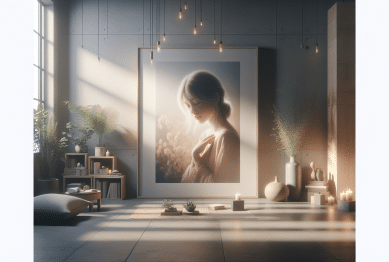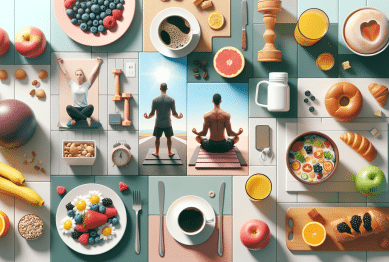Curious about why minimalist living is having such an impact? Explore practical minimalist living hacks, discover how decluttering your space can bring surprising mental clarity, and learn strategies for simplifying your daily routine in ways that can truly make life feel lighter and more enjoyable.
Why Minimalist Living Appeals to More People
Minimalist living isn’t just about having fewer belongings. It’s a philosophy that focuses on intentionality and simplicity. Many people are drawn to the minimalist lifestyle because it helps reduce decision fatigue and stress. When the environment is less cluttered, mental focus improves. This effect, noted by organizers and lifestyle coaches, often leads to a sense of peace and wellbeing. Individuals are finding that living with less can actually make experiences richer, which may explain why the minimalist aesthetic has made its way into home design, fashion, and entertainment content across digital platforms (https://www.apa.org/topics/mental-health/declutter-mental-health).
Choosing minimalist living means prioritizing what truly matters. It inspires people to keep only the items that serve a real purpose or bring joy, applying the concept of essentialism to both material and digital possessions. There is increasing recognition that minimalism isn’t about deprivation; rather, it’s about mindful curation. This conscious approach often leads to reduced spending and increased satisfaction with what one does have. For some, the minimalist movement extends into entertainment choices, prompting reflection on digital consumption habits and encouraging more meaningful leisure activities.
Many cite improvements in sleep, focus, and overall mood after decluttering. Removing excess possessions also frees up time that would have been spent organizing or cleaning, leaving room for activities that foster creativity and relaxation. Minimalism invites individuals to evaluate not just their physical space, but also their schedules and relationships, to intentionally design a lifestyle that leaves room for rest and authentic connection. This mindful, less-is-more approach is proving especially resonant for those seeking calm in today’s busy world.
The Essentials of Decluttering Your Home
Decluttering your space is a core step. Start by evaluating which items you genuinely need and use regularly. Many people choose to break large tasks into smaller, more manageable ones—focusing on a single drawer, closet, or category at a time. Approaches like the “one in, one out” rule are popular. Committing to remove an item for every new one acquired helps keep possessions under control. It’s not just about less, but about thoughtful curation. Decluttering has also been linked to positive psychological benefits, such as relief from stress and anxiety (https://newsinhealth.nih.gov/2019/08/declutter-your-surroundings).
Not all clutter is physical. Digital clutter—from files and photos to app notifications—can cause distraction and mental fatigue. Many are finding relief by organizing digital spaces and limiting screen time. Unsubscribing from unnecessary emails, deleting unused apps, and tidying digital desktops offer the same sense of clarity as organizing a physical room. Making regular decluttering a habit, both in digital and physical spheres, helps maintain a sense of order and ease.
The process of letting go can be emotional. Sentimental items are difficult for many to part with. Experts suggest photographing cherished belongings before donating them, allowing memories to be kept without holding on to physical objects. Support from decluttering communities—online or in-person—can also provide motivation and accountability. Progress may be gradual, but each step brings fresh perspective and more breathing room, both at home and in the mind.
Simplifying Routines: The Power of Less
Minimalist living goes beyond tidying. Daily routines benefit as well. Streamlining morning and evening rituals can lead to less stress and greater mindfulness. Instead of juggling multiple tasks at once, try focusing on one thing at a time. For example, setting out tomorrow’s clothes the night before or meal prepping simple, healthy recipes makes mornings calmer. Many find that cutting back on “busy work” creates time for reflection or creative hobbies.
Technology overload is common. Minimalism suggests limiting notifications and choosing quality entertainment over quantity. Some individuals set specific times to check messages or social feeds, carving out more space for unwinding. Scheduling screen-free moments during the day, such as a quiet walk or book time, serves as a digital detox that restores attention span and energy. These shifts can sometimes reduce feelings of overwhelm and help create boundaries in today’s hyper-connected world (https://www.simplypsychology.org/digital-detox.html).
Even social obligations are getting a minimalist makeover. More people discover joy in smaller gatherings and simpler celebrations. Skipping events that don’t align with personal values, or paring down traditions to their meaningful elements, can free up time for deeper relationships. While it requires intention, simplifying routines opens up space—physically, mentally, and emotionally—to focus energy where it matters most.
Minimalism in Fashion and Entertainment Choices
The wardrobe is a good place to practice minimalism. Capsule wardrobes—a small collection of versatile pieces—help reduce decision overload in the mornings. Countless style guides encourage individuals to invest in high-quality basics that can be mixed and matched. This less-is-more approach carries over into shopping habits, with minimalists often focusing on ethically made, long-lasting items. Fashion brands have noticed and now regularly feature “timeless” or “seasonless” pieces in their collections (https://www.nytimes.com/guides/smarterliving/how-to-pack-a-suitcase).
Entertainment options can benefit as well. Instead of hours of endless scrolling, participants in minimalist living often choose intentional, one-at-a-time viewing or listening. For music lovers, this might mean thoughtfully curating playlists. Movie nights can become meaningful rituals, where attention isn’t split across multiple screens or tabs. Following minimalist principles doesn’t equate to being out of touch—it’s about savoring the experience of the moment.
By consciously limiting choices and focusing on quality experiences, many report increased satisfaction from media and entertainment. Some prefer books or podcasts that align with personal growth, while others set boundaries around binge-watching shows. These mindful media habits are becoming increasingly valued in today’s world, where entertainment overload is common and time is precious.
Creating Lasting Lifestyle Habits With Minimalism
The minimalist journey isn’t about perfection. Consistency counts more than dramatic overhauls. Practicing gratitude for what’s already present, and evaluating new purchases or commitments carefully, helps reinforce minimalism for the long haul. Many use tools such as regular reflection, journaling, and habit trackers to stay on course. Families often find that raising children with minimalist values leads to less chaos and greater appreciation for everyday experiences (https://www.childmind.org/article/the-art-of-slow-parenting/).
Embracing minimalism can enhance well-being and resilience. With less physical and emotional clutter, it’s easier to adapt to life’s changes. The process also supports sustainability—consuming less means generating less waste and conserving resources, which benefits both individuals and the environment. Participants frequently express a sense of empowerment, finding freedom in self-imposed boundaries.
As minimalism becomes part of everyday living, communities and social groups are forming to provide support and inspiration. Whether online or in-person, these connections reinforce minimalism’s benefits and help maintain momentum through challenges. The minimalist lifestyle isn’t just a trend; it’s a meaningful shift toward intentional living. Those who continue the practice often notice long-term satisfaction and an overall sense of contentment.
Minimalism and Wellness: Mental Clarity and Emotional Balance
Minimalism is closely tied to emotional well-being and clarity. As physical clutter diminishes, many report sharper focus and better concentration. Some studies highlight links between tidy spaces and reduced anxiety (https://www.ncbi.nlm.nih.gov/pmc/articles/PMC6010118/). The effects aren’t just psychological; creating a calm environment can help relax the nervous system, supporting overall health.
The principles of minimalism can extend to mindfulness practices. Meditative techniques, such as focusing on a single task or slow breathing, align well with minimalism ideals. People who incorporate these habits often notice less agitation and greater resilience. Whether through yoga, journaling, or quiet reflection, these routines work as a buffer against external stressors and foster emotional stability.
Emotional benefits of minimalism often appear gradually. Participants frequently feel better able to let go of past regrets, resist the urge for comparison, and remain present. The minimalist approach creates room for gratitude and intention—qualities linked with higher satisfaction and lower rates of depression. As a result, the lifestyle not only transforms spaces but also leaves a lasting positive imprint on the mind and heart.
References
1. American Psychological Association. (n.d.). Declutter your surroundings. Retrieved from https://www.apa.org/topics/mental-health/declutter-mental-health
2. NIH News in Health. (2019). Declutter your surroundings. Retrieved from https://newsinhealth.nih.gov/2019/08/declutter-your-surroundings
3. Simply Psychology. (n.d.). Digital detox: What, why, and how. Retrieved from https://www.simplypsychology.org/digital-detox.html
4. The New York Times. (n.d.). How to pack a suitcase. Retrieved from https://www.nytimes.com/guides/smarterliving/how-to-pack-a-suitcase
5. Child Mind Institute. (n.d.). The art of slow parenting. Retrieved from https://www.childmind.org/article/the-art-of-slow-parenting/
6. NIH National Library of Medicine. (2018). Declutter to de-stress: The relationship between organization and well-being. Retrieved from https://www.ncbi.nlm.nih.gov/pmc/articles/PMC6010118/









